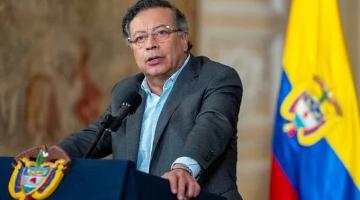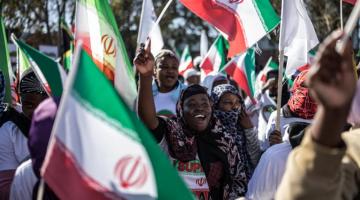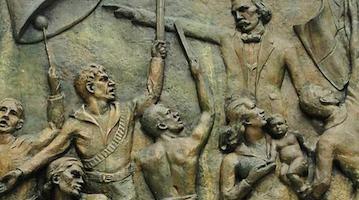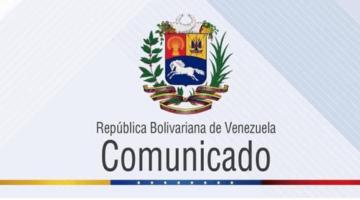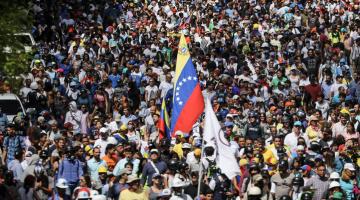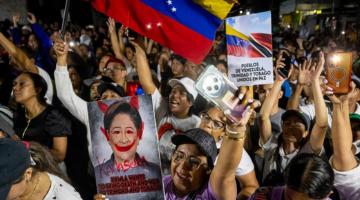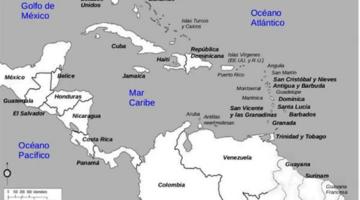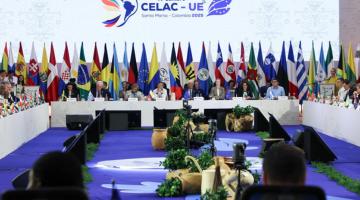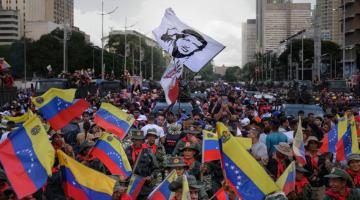Inmates in a cell at the Terrorism Confinement Center, a prison complex in Tecoluca, El Salvador, that has become a symbol of President Nayib Bukele’s administration. Photo: Marvin Recinos/Agence France-Presse
The deal for a prisoner exchange proposed by the El Salvadoran president presents a dangerous threat to incarcerated people in the U.S. The continued outsourcing of the U.S. penal system signals the empire's growing carceral activities and its attempt to remain a dominant force in the region.
El Salvador’s President Nayib Bukele has recently proposed a controversial agreement with the United States: to house ‘violent’ criminals from the U.S. in his country’s prisons in exchange for financial compensation. This deal, confirmed by Bukele on social media, would see convicted individuals, including U.S. citizens and legal residents, incarcerated in El Salvador’s Terrorism Confinement Center (CECOT), a mega-prison with a capacity for 40,000 inmates. While Bukele frames this as a mutually beneficial arrangement—low-cost for the U.S. but financially significant for El Salvador—the implications of this agreement extend far beyond economics. It raises critical questions about the global replication of carceral systems, human rights violations, and the broader phenomenon of *prison imperialism*.
CECOT, the centerpiece of Bukele’s anti-crime campaign, is a stark representation of his government’s harsh approach to incarceration. Since its opening in 2023, the facility has been criticized for its inhumane conditions. Inmates are confined in overcrowded cells, denied visitation rights, and stripped of access to rehabilitation programs. The prison’s design prioritizes punitive measures over reform, with no efforts to prepare detainees for reintegration into society. Instead, prisoners are subjected to rigid control, occasional motivational talks, and supervised exercise routines. This model, has drawn condemnation from human rights organizations, which have documented cases of abuse, torture, and neglect, including over 260 deaths during Bukele’s crackdown.
Bukele has been aligning El Salvador with the U.S. agenda since agreeing to send a contingent to Haiti to bolster the occupying entities of the US, the United Nations Integrated Office in Haiti (BINUH), and the Core Group’s mission led by Kenyan police to help ‘fight gangs’ in the nation.
The ongoing occupation of Haiti and calls for increased foreign military presence in Haiti have been justified as the only solution to political or economic crises. Yet, the true ongoing crisis in Haiti is a crisis of imperialism.
Bukele’s proposal to incarcerate U.S. criminals is not merely a bilateral agreement with the Trump administration; it reflects a broader trend of U.S imperialism’s imposition on the region, only this time it is taking on the face of prison imperialism. This concept refers to the exportation of carceral systems and ideologies from dominant powers like the U.S. to other nations, often under the guise of security or economic cooperation. The U.S., with its massive incarcerated population of 1.9 million and an additional 3.7 million under parole or probation, has long been a global leader in punitive justice. By outsourcing its prisoners to El Salvador, the U.S. not only offloads its carceral burden but also reinforces the global normalization of mass incarceration.
Prison imperialism is deeply intertwined with the mechanisms of capitalism and neoliberal dominance. As capitalism expands beyond national borders, so too do its systems of control. Prisons, as extensions of militarized policing, serve as tools to suppress dissent and maintain order. In the U.S., this system has its roots in settler colonialism and fascist ideologies, which have been exported globally to uphold Western hegemony. The replication of these systems in countries like El Salvador ensures the continued dominance of neoliberal policies, often at the expense of human rights and sovereignty.
The United States, representing just over 4 percent of the world’s population, incarcerates approximately 20 percent of its prisoners. This staggering statistic underscores the scale of the U.S. carceral system, which disproportionately targets Black people, imprisoning them at five times the rate of whites. Beyond the 1.9 million currently incarcerated, another 4.5 million are under explicit carceral surveillance through parole and probation, bringing the total number of people under carceral management to nearly 7 million. When considering the broader impact, estimates suggest that 65 million people—a conservative figure—have passed through this system at some point, leaving them with criminal records that subject them to various forms of exclusion and marginalization.
The carceral state extends even further, infiltrating daily life through border militarization, pervasive surveillance, broken windows policing, police violence, xenophobic legislation, gentrification, deportation, checkpoints, and the school-to-prison pipeline. These mechanisms create a society where carceral logic governs not only prisons but also the “freeworld,” normalizing exclusion and control as tools of governance
The conditions in CECOT and the broader implications of Bukele’s deal highlight the dangers of prioritizing security over human dignity. The lack of due process, the inhumane treatment of prisoners, and the absence of rehabilitation programs underscore the dehumanizing nature of this carceral model. Moreover, the global expansion of such systems criminalizes dissent, both domestically and internationally. Activists and organizers fighting against austerity, neoliberalism, and occupation—such as the African People’s Socialist Party or political prisoners like Mumia Abu-Jamal and Imam Jamil Al-Amin—are often targeted and silenced by these oppressive structures.
Bukele’s agreement with the U.S. is not just a financial transaction; it is a manifestation of prison imperialism, a system that perpetuates global inequality and repression. By understanding this phenomenon as an extension of capitalist and colonial domination, we can better grasp the interconnectedness of carceral systems worldwide. Resistance to these systems must be equally interconnected, challenging not only the conditions within prisons but also the ideologies that sustain them. As we witness the expansion of punitive justice models, it is imperative to advocate for alternatives that prioritize human rights, rehabilitation, and sovereignty over profit and control.
The fight against prison imperialism is not just about El Salvador or the U.S.; it is about dismantling a global system that thrives on oppression and exploitation.
**En Español**
Imperialismo Carcelario: Un Examen Crítico del Acuerdo de Bukele con Estados Unidos
El presidente de El Salvador, Nayib Bukele, ha propuesto recientemente un acuerdo controvertido con Estados Unidos: albergar a delincuentes "violentos" de ese país en las cárceles de su nación a cambio de una compensación económica. Este acuerdo, confirmado por Bukele en redes sociales, implicaría que personas convictas, incluyendo ciudadanos estadounidenses y residentes legales, sean encarceladas en el Centro de Confinamiento del Terrorismo (CECOT) de El Salvador, una megacárcel con capacidad para 40,000 reclusos. Aunque Bukele presenta este acuerdo como un arreglo mutuamente beneficioso—de bajo costo para Estados Unidos pero significativo económicamente para El Salvador—las implicaciones de este pacto van más allá de lo económico. Plantea preguntas críticas sobre la replicación global de sistemas carcelarios, violaciones de derechos humanos y el fenómeno más amplio del imperialismo carcelario.
El CECOT, pieza central de la campaña contra el crimen de Bukele, es una representación clara del enfoque severo de su gobierno hacia el encarcelamiento. Desde su inauguración en 2023, el centro ha sido criticado por sus condiciones inhumanas. Los reclusos están confinados en celdas superpobladas, se les niega el derecho a visitas y carecen de acceso a programas de rehabilitación. El diseño de la prisión prioriza medidas punitivas sobre la reforma, sin esfuerzos para preparar a los detenidos para su reintegración a la sociedad. En cambio, los prisioneros están sujetos a un control rígido, charlas motivacionales ocasionales y rutinas de ejercicio supervisadas. Este modelo ha generado condenas por parte de organizaciones de derechos humanos, las cuales han documentado casos de abuso, tortura y negligencia, incluyendo más de 260 muertes durante la ofensiva de Bukele.
Bukele ha estado alineando a El Salvador con la agenda de Estados Unidos desde que acordó enviar un contingente a Haití para reforzar las entidades ocupantes lideradas por EE.UU., como la Oficina Integrada de las Naciones Unidas en Haití (BINUH) y la misión del Grupo Central encabezada por la policía keniana, con el objetivo de "combatir pandillas" en el país.
La ocupación continua de Haití y los llamados para aumentar la presencia militar extranjera en el país se han justificado como la única solución a las crisis políticas o económicas. Sin embargo, la verdadera crisis en Haití es una crisis de imperialismo.
La propuesta de Bukele de encarcelar a criminales de EE.UU. no es simplemente un acuerdo bilateral con la administración de Trump; refleja una tendencia más amplia de la imposición del imperialismo estadounidense en la región, solo que esta vez adopta el rostro del imperialismo carcelario. Este concepto se refiere a la exportación de sistemas e ideologías carcelarias desde potencias dominantes como EE.UU. hacia otras naciones, a menudo bajo el pretexto de seguridad o cooperación económica. Estados Unidos, con su enorme población encarcelada de 1.9 millones de personas y otros 3.7 millones bajo libertad condicional o probation, ha sido durante mucho tiempo un líder global en justicia punitiva. Al externalizar sus prisioneros a El Salvador, EE.UU. no solo descarga su carga carcelaria, sino que también refuerza la normalización global del encarcelamiento masivo.
El *imperialismo carcelario* está profundamente entrelazado con los mecanismos del capitalismo y el dominio neoliberal. A medida que el capitalismo se expande más allá de las fronteras nacionales, también lo hacen sus sistemas de control. Las cárceles, como extensiones de una policía militarizada, sirven como herramientas para suprimir el disenso y mantener el orden. En Estados Unidos, este sistema tiene sus raíces en el colonialismo de asentamiento y las ideologías fascistas, las cuales se han exportado globalmente para sostener la hegemonía occidental. La replicación de estos sistemas en países como El Salvador asegura la continuidad del dominio de las políticas neoliberales, a menudo a costa de los derechos humanos y la soberanía.
Estados Unidos, que representa poco más del 4% de la población mundial, encarcela aproximadamente al 20% de los prisioneros del mundo. Esta estadística asombrosa subraya la magnitud del sistema carcelario estadounidense, el cual afecta de manera desproporcionada a las personas negras, encarcelándolas a una tasa cinco veces mayor que la de las personas blancas. Más allá de los 1.9 millones actualmente encarcelados, otros 4.5 millones están bajo vigilancia carcelaria explícita a través de la libertad condicional y el probation, lo que eleva el número total de personas bajo control carcelario a casi 7 millones. Si se considera el impacto más amplio, estimaciones sugieren que 65 millones de personas—una cifra conservadora—han pasado por este sistema en algún momento, dejándolas con antecedentes penales que las someten a diversas formas de exclusión y marginación.
El *estado carcelario* se extiende aún más, infiltrándose en la vida cotidiana a través de la militarización de las fronteras, la vigilancia generalizada, las políticas de "tolerancia cero", la violencia policial, la legislación xenófoba, la gentrificación, las deportaciones, los puntos de control y el sistema que conduce de la escuela a la prisión. Estos mecanismos crean una sociedad donde la lógica carcelaria gobierna no solo las prisiones, sino también el "mundo libre", normalizando la exclusión y el control como herramientas de gobernanza.
Las condiciones en el CECOT y las implicaciones más amplias del acuerdo de Bukele resaltan los peligros de priorizar la seguridad sobre la dignidad humana. La falta de debido proceso, el trato inhumano hacia los prisioneros y la ausencia de programas de rehabilitación subrayan la naturaleza deshumanizante de este modelo carcelario. Además, la expansión global de estos sistemas criminaliza el disenso, tanto a nivel nacional como internacional. Activistas y organizadores que luchan contra la austeridad, el neoliberalismo y la ocupación—como el Partido Socialista del Pueblo Africano o presos políticos como Mumia Abu-Jamal e Imam Jamil Al-Amin—son frecuentemente objetivo de estas estructuras opresivas y silenciados por ellas.
El acuerdo de Bukele con Estados Unidos no es solo una transacción financiera; es una manifestación del *imperialismo carcelario*, un sistema que perpetúa la desigualdad y la represión global. Al entender este fenómeno como una extensión del dominio capitalista y colonial, podemos comprender mejor la interconexión de los sistemas carcelarios en todo el mundo. La resistencia a estos sistemas debe ser igualmente interconectada, desafiando no solo las condiciones dentro de las prisiones, sino también las ideologías que las sostienen. Mientras presenciamos la expansión de modelos de justicia punitiva, es imperativo abogar por alternativas que prioricen los derechos humanos, la rehabilitación y la soberanía sobre el lucro y el control.
La lucha contra el imperialismo carcelario no se trata solo de El Salvador o Estados Unidos; se trata de desmantelar un sistema global que prospera en la opresión y la explotación.
Erica Caines is a writer and organizer in Baltimore and the DMV. Caines is the Field Operations and Membership coordinator of The Black Alliance For Peace, a member of the survBlack working-class centered Ujima People’s Progress Party in Maryland, and founder of #LiberationThroughReading, providing African children with books that represent them.
Clau O'Brien Moscoso is an organizer and co-coordinator of the Black Alliance for Peace Haiti/Americas Team. Originally from Barrios Altos, Lima, she grew up in Kearny, New Jersey. She attended college, lived, and organized in New York City for 15 years, and is now based in Lima, Perú, writing about Latin America and the Caribbean for the Black Agenda Report.

